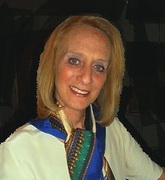On April 8, 2011, the U.S. Food and Drug Administration shot down a request by Merck Pharmaceuticals to extend the age for those able to receive the HPV vaccine Gardasil from the current age of 26 to 45 years of age.
Merck has made several applications to the FDA for just this reason. Unfortunately the third time was not a charm for Merck. In addition to applications to extend the age range, Merck has over the years submitted numerous applications to the FDA for revision of the vaccine’s indications. The majority of those have been favorable.
In December 2010, the FDA approved Gardasil for the prevention of anal cancer caused by HPV types 16 and 18 and also anal intraepithelial neoplasia grades 1, 2 and 3 (precancerous lesions). This approval was for both males and females despite the fact that the studies were performed predominantly on males. It appears to be obvious that the development of anal cancer from HPV is not solely limited to males despite the research population. In 2009, Merck again received approval for the use of the vaccine in males.
Since its inception in 2006, the indications for use have expanded tremendously. Initially it was approved only for the prevention of cervical cancer and the precancerous lesions (CIN) associated with strains 16 and 18, the two most aggressive strains when it comes to the development of malignancy. The indications have been modified numerous times to include not only cervical cancer but also vaginal and vulvar cancers and the precancerous lesions associated with these two areas as well referred to as VaIN (vaginal) and VIN (vulvar).
It is unfortunate, in this author’s opinion, that the FDA would not consider those women who have been in long-standing monogamous relationships and suddenly find themselves divorced or widowed and back on the dating scene. Shouldn’t they be entitled to that same protection? Chances are they have not been exposed to the virus yet, and now have a very high likelihood of contracting it from any future partner. HPV is known to affect 80 percent of the population at some time or another during their lifetime. It also does not take in account victims of abuse or rape, the consequences of which are horrific enough without having to compound it with the presence of a lifelong virus known to cause cancer. Perhaps in the future, decisions like these will take into account the psychosocial, financial and other ramifications rather than simply going by the numbers.
http://www.merck.com/newsroom/news-release-archive/vaccine-news/2010_1222.html
http://www.merckvaccines.com/Products/Gardasil/Pages/indications.aspx
http://finance.yahoo.com/news/FDA-Denies-Gardasil-Label-zacks-4132988108.html?x=0&.v=1
Edited by Alison Stanton
Bonnie Diraimondo is an RN and considered an expert in HPV. She maintains her own website, thehpvsupportnetwork.org and is an advocate for education of both the public and practicing physicians along with vaccination.






Add a CommentComments
There are no comments yet. Be the first one and get the conversation started!